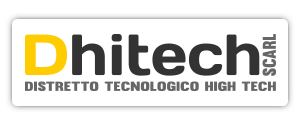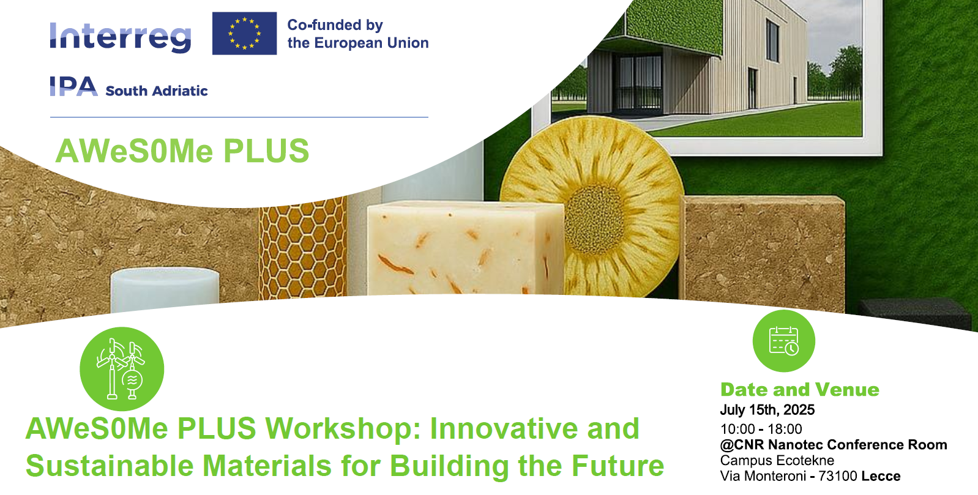AWeS0Me PLUS Workshop: Innovative and Sustainable Materials for Building the Future – July 15, 2025 – Lecce
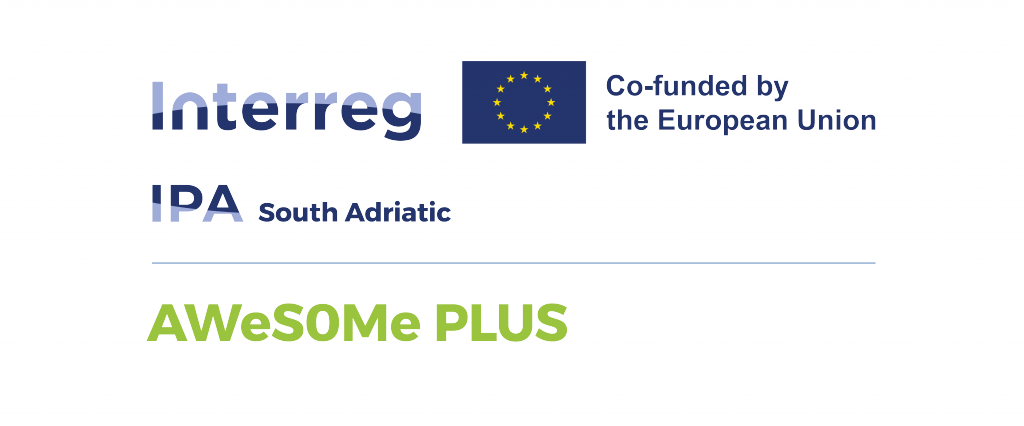
AWeS0Me PLUS Workshop: Innovative and Sustainable Materials for Building the Future will take place on Tuesday July 15, 2025 at the Conference Room of CNR-Nanotec – Campus Ecotekne, Lecce.
The event, organized by DHITECH, aims to explore and promote innovative, sustainable building materials, with a focus on reusing industrial waste. It will also highlight next-generation advanced materials and their role in enhancing energy efficiency, environmental sustainability and quality of life. The event will provide an integrated overview of circular, low-impact material solutions with practical construction applications, technological innovations in advanced materials and related sustainable business models. It will foster collaboration between researchers, industry and policymakers to encourage widespread adoption of these innovations. The ultimate goal is to spark multidisciplinary dialogue and new partnerships that contribute to building a more resilient, efficient and sustainable future.
The Project SA-0100231 – AWeS0Me PLUS – Agricultural WastE as Sustainable 0 km building MatErial PLUS is co-financed by the European Union under the Programme Interreg VI-A – IPA CBC South Adriatic and aims to capitalize on the AWeS0Me Project outputs, focusing on identifying and promoting innovative building materials derived from non-agricultural and non-food waste sources. The goal is to explore sustainable, low-impact alternatives to conventional thermal insulation materials, which often have a high environmental footprint due to their production processes.
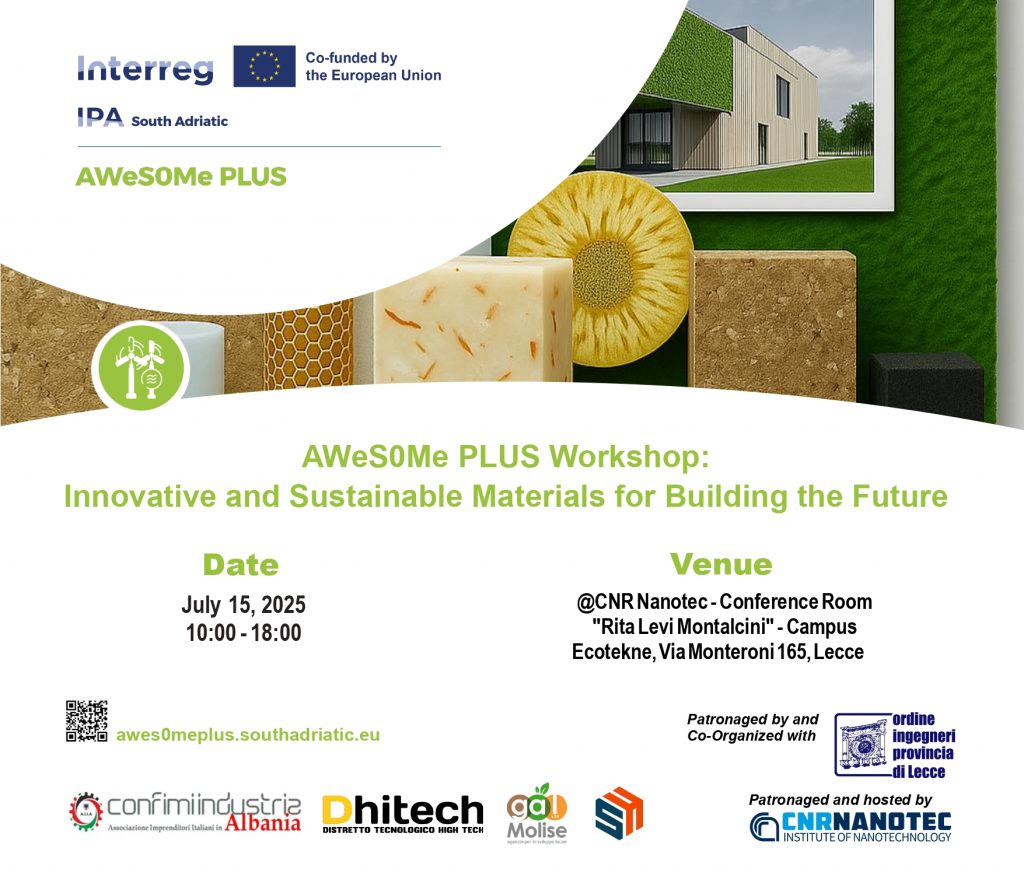
Download the Poster
Download the Agenda
The Workshop foresees two technical sessions in which several speakers, including experts, professors, researchers coming from public and private entities (Enterprises, Research Centers, Universities), will provide their relevant contribution on next-generation advanced materials and their role in enhancing energy efficiency, environmental sustainability and quality of life.
LOCATION: Conference Room – CNR Nanotec – Campus Ecotekne – Via Monteroni 165 Lecce
REGISTER HERE >>
ORGANIZING COMMITEE
Dr. Tiziana Valerio (Dhitech)
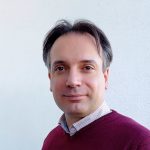
Ing. Nicola Sicilia (Dhitech)
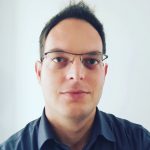 Dr. Luciano Schina (Dhitech)
Dr. Luciano Schina (Dhitech)

Dr. Silvia Cassone (Dhitech)
Silvia Cassone holds a Master’s degree in Business Management from the University of Salento with top honors and has specialized in Change Management and Digital Transformation. She has gained experience in administration, financial control, project management, and communication through various academic and professional experiences. Fluent in Italian, English, French, and Spanish, she is eager to grow in dynamic and international environments.
 Dr. Emanuele Serra (Dhitech)
Dr. Emanuele Serra (Dhitech)
Emanuele Serra is Dhitech’s project support; he graduated in Economics and Management in 2018. Behind him, there are several years of experience in financial services, administration and marketing. He speaks Italian, English and Spanish and is fascinated and passionate by innovation and technologies, with all their applications.
PROJECT PARTNERS PRESENTATION
 Besa Beshi (Confimi Albania)
Besa Beshi (Confimi Albania)
Presentation of the Confimi NGO
A short presentation about what our Ngo does and its ongoing projects.
My name is Besa Beshi, and I graduated from the Faculty of Law at the private institution, Aleks Luarasi School. Since 2017, I have been working as a lawyer at an accounting firm, gaining extensive experience in legal and financial matters. In addition to my legal career, 1 am actively involved with Confimi NGO, a nongovernmental organization based in Albania, where I contribute to its initiatives and growth. I am a friendly and approachable person, and I truly enjoy my work.

Ing. Nicola Sicilia (Dhitech)
Presentation of Dhitech and its ecosystem
An overview about Dhitech Foundation, its activities, research and innovation projects and its ecosystem of innovation.
Nicola Sicilia is a Management Engineer and Responsible of the Dhitech Project Management Office. He graduated with honors in Management Engineering from the University of Calabria in 2004 and obtained in 2006 a II level Master in Business Innovation Leadership at the University of Salento, where he started working as Research Collaborator in the same year. He has been working at Dhitech since 2012, where he deals with design, planning, coordination, implementation, dissemination, technical-economic management, monitoring, control, reporting, both as Beneficiary and Lead Partner, of complex innovation projects, funded by the European, National and Regional Programs. He is the author of 2 scientific publications.
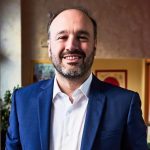 Dr. Adolfo Colagiovanni (Gal Molise)
Dr. Adolfo Colagiovanni (Gal Molise)
Presentation of Gal Molise Verso il 2020 and its ecosystem
A presentation about Local Action Group Molise, what it does and its ongoing projects.
Adolfo Colagiovanni is a European Project Manager and Director of Local Action Group Molise. He graduated in Innovation and Development at University of Rome in 2010 and obtained in 2011 a II level Master in European Project Management at University of Molise and European Institute of Public Administration. He has been working at LAG Molise from 2016, where he deals with design and management of regional, national and European projects, both as Beneficiary and Lead Partner funded by the European, National and Regional Programs. He also work as freelance EU project manager for several organizations in Molise, as the regional government, the University of Molise, municipalities and no profit associations.
 Dr. Sara Sulce (Smart Horizont)
Dr. Sara Sulce (Smart Horizont)
Presentation of the Smart Horizont NGO
A short presentation about what our NGO does and its ongoing projects.
My name is Sara Sulce. I graduated in Economics from the University of Tirana, Faculty of Economics. Since 2020, I have been working as an accountant at an accounting firm. In addition to my professional career, I am actively involved with Smart Horizont NGO, an organization founded in Montenegro in 2021. We are currently running several impactful projects. I am friendly, approachable, and passionate about my work.
I am always eager to learn and contribute to both my professional and personal growth.
TECHNICAL SPEECHES
 Dr. Ing. Fabio Longo (Dhitech)
Dr. Ing. Fabio Longo (Dhitech)
Sustainable Engineering: Exploring the Impact of Geopolymer Materials on Energy Savings and Sustainability
Building retrofitting presents challenges in material selection and sustainability. Geopolymer mortars offer an eco-friendly solution, involving industrial by-products to reduce embodied carbon. Their development involves optimizing mix designs and assessing mechanical and thermal properties. Sustainability assessment integrates life cycle analysis and techno-economic evaluations, considering environmental impacts and cost-effectiveness. The key is to balance performance, cost, and environmental benefits for effective, sustainable retrofits.
Fabio Longo holds a PhD in Materials, Structure, and Nanotechnology Engineering, earned with his dissertation titled “Structural and energy retrofitting of masonry structures using IMC systems.” During his PhD, he was a visiting scholar for six months in 2019 at the University of Houston, Texas, USA. During his doctoral studies, he developed an innovative technological solution for a combined seismic and energy retrofitting approach for existing buildings. He is author of numerous scientific articles in international and Italian journals on the structural and energy-related aspects of existing buildings.
Since 2020, he has been working as a professional civil engineer, applying the expertise acquired during his studies. He has been responsible for the design and supervision of numerous interventions on private and public buildings. His main focus is on complex structural interventions on existing structures and energy retrofitting of new and older buildings.
 Ing. Chiara Forte (S.I.PRE. s.r.l.)
Ing. Chiara Forte (S.I.PRE. s.r.l.)
SIPRE: from research to green building innovation
SIPRE is a Company located in Cutrofiano (LE), with 15 years of experience in industrial research, focused on the development of innovative construction materials. The Company was involved as a Partner in numerous national and regional projects, collaborating with Research Centers, Universities and Industrial Partners. SIPRE has developed photocatalytic mortars, which achieved Technology Readiness Level (TRL) 9. Additionally, the company has engineered cement-free geopolymer mortars, reaching TRL 7.
SIPRE is a manufacturing Company specializing in mortars for the construction sector. With over 15 years of sustained investment in research and development, SIPRE is committed to advancing innovative building materials. The Company has acted as a partner in numerous national and regional research projects. Through the
NANOAPULIA Project, which employed nanotechnologies for air pollution mitigation, SIPRE successfully attained Technology Readiness Level (TRL) 9 by developing photocatalytic mortars.
Moreover, SIPRE has made significant investments in the research and development of geopolymers, synthetic inorganic binders that provide sustainable alternatives to cement, with superior mechanical properties and durability. The Company has conducted research on geopolymers within the ITACHA, PROVACI, and CIRCE projects, in addition to sponsoring a PhD program in collaboration with the University of Salento (Unisalento). Through its research on geopolymers, SIPRE has reached TRL 7.
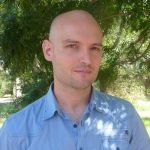 Dr. Fabrizio Mariano (CNR-NANOTEC)
Dr. Fabrizio Mariano (CNR-NANOTEC)
Advanced optoelectronic devices for light generation and energy management
Buildings account for a large share of global energy use and greenhouse gas emissions. Proven technologies can reduce building energy consumption by 30–80%, making this sector key for emission reduction. Our research focuses on building integration solutions, particularly smart windows to reduce heat loss, and advanced lighting technologies, such as OLEDs, to improve energy efficiency in residential and commercial environments.
Fabrizio Mariano received his Ph.D. in Interdisciplinary Science and Technology from the University of Salento.
His research at the National Research Council (CNR) has primarily focused on the study and fabrication of organic electroluminescent diodes for applications in the automotive and lighting industries.
In particular, his interests include the optical and electrical characterization of organic and organic/inorganic hybrid materials and their integration into electroluminescent devices, the design and optimization of OLED architectures, and the development of innovative technologies aimed at enhancing device efficiency. He is currently involved in research projects focused on the integration of optoelectronic components—particularly flexible OLEDs—into technical textiles for active worker protection.
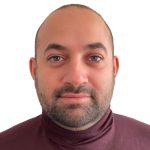 Prof. Ing. Alessio Cascardi (University Of Calabria)
Prof. Ing. Alessio Cascardi (University Of Calabria)
Seismic-energy reinforcements for structural adaptation
In the pursuit of energy-efficient and resilient buildings, thermal-energy reinforcements have gained prominence as a dual-purpose solution for structural adaptation. By integrating thermal insulation systems within the broader context of structural retrofitting, the proposed approach enhances not only a building’s seismic resilience but also its thermal performance. These interventions reduce energy consumption, improve indoor comfort, and contribute to sustainability goals, all while strengthening the structure against physical stresses. This speech examines design principles, materials, and case studies demonstrating how thermal-energy upgrades can future-proof existing buildings through comprehensive, unified retrofitting strategies.
Prof. Alessio Cascardi is an Associate Professor at the University of Calabria, Italy, specializing in structural engineering and the rehabilitation of existing buildings. With degrees in Building Systems and Civil Engineering and a PhD in Materials and Structural Engineering, his research focuses on structural and energy retrofitting using traditional and innovative composite materials. He has authored over 60 scientific publications and holds two patents in construction technology. Prof. Cascardi is recognized for his work on FRCM systems and predictive modelling using both classical and AI-based methods. He actively contributes to international scientific committees and standardization efforts, bridging academic research with practical applications in infrastructure resilience and sustainability.
 Dr. Cinzia Citti (CNR-NANOTEC)
Dr. Cinzia Citti (CNR-NANOTEC)
The UNIHEMP Project: Turning hemp waste into sustainable energy and biochemicals
The UNIHEMP project aims to develop a technological platform for the sustainable reuse of hemp cultivation waste. In addition to the already exploited seeds and fibers, the project focuses on undervalued parts such as inflorescences and shives, rich in bioactive compounds and biomass. These are used to produce biochemicals, cosmeceuticals, and renewable energy. UNIHEMP promotes a circular economy model that integrates agriculture, technological innovation, and industry, in line with EU strategies for sustainable growth and the development of a competitive bioeconomy.
Dr. Cinzia Citti graduated in Biotechnology in 2011 at the University of Salento (Lecce, Italy) with a thesis on the design, synthesis and biological evaluation of positive allosteric modulators of AMPA receptors. During her PhD in Chemical and Molecular Sciences she moved to the School of Chemistry of the University of Bristol to work on lithiation/electrophilic trapping chemistry. In 2015 she joined a project on metabolomic characterization of cannabis extracts at the Institute of Nanotechnology of the Italian National Council of Research (CNR NANOTEC). In 2018 her team was selected as international experts of cannabis chemistry by the World Health Organization to write the review reports for the first revision process of the legal status of cannabis after the 1961 Single Convention. Her contribution to the knowledge of cannabis chemistry resulted in the recent discovery of new classes of phytocannabinoids. Now she is a research fellow at the Institute of Nanotechnology working on a project for the development of a metabolomic platform for the metabolic profiling of complex biological matrices by means of high-performance liquid chromatography coupled to high-resolution mass spectrometry techniques.

Dr. Alba Chiara De Vitis (Radice Cubica Srl)
Functional Cosmetics: the Role of Biomaterials. Circular Economy Assessment for Local Supply Chain.
We present protocols for functional cosmetics, focusing on biomaterials as sustainable ingredient sources. Our approach integrates biomaterial use with a thorough sustainability and circular economy assessment specifically for local supply chains. As a key example, we’ll present a case study: Floramolecules (www.floramolecules.com). This joint project by Radice Cubica and Alchemia Essenze highlights our method based on bio-sourced raw
materials analysis and operates on a zero-waste protocol supply chain.
Alba Chiara De Vitis is a mathematician with expertise in Data Science, Machine Learning, and AI. She earned her Mathematics degree from the Università di Pavia and a PhD in Computer Science and Applied Mathematics from INRIA, Sophia Antipolis. As a data scientist, Dr. De Vitis has developed data strategies and algorithm design for EU and international projects. Since 2017, Dr. De Vitis has served as CEO/R&D Director of Alchemia Essenze Srl, an innovative company that leverages data analysis and algorithm design in the fields of chemical raw materials and fragrance. Her work at AE, includes the implementation of ML/AI-powered methodologies and a strong emphasis on lean strategies. Her scientific pursuits encompass mathematical modeling, data analysis, AI, and molecular design. Dr. De Vitis’s work aims at integrating these advanced fields into corporate frameworks, with a focus on sustainability and the circular economy. She also contributes to academia as a lecturer at Istituto Marangoni Firenze.
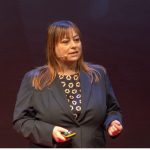 Dr. Luisa De Marco (CNR-NANOTEC)
Dr. Luisa De Marco (CNR-NANOTEC)
Organic batteries for sustainable energy storage
Energy storage technologies are key to the clean energy transition. However, the rapid growth of lithium-ion batteries raises concerns about the availability of critical materials such as lithium and cobalt.
This research introduces a technology that combines organic redox molecules with nanostructured materials to efficiently store and release electrons.
Preliminary results, supported by the ERC Consolidator Grant ‘Hynanostore’, demonstrate the principles of this bio-inspired approach, which holds promise for sustainable and versatile energy storage solutions.
Luisa De Marco is a Senior Researcher at CNR-NANOTEC in Lecce (Italy). She received her Ph.D. in Nanoscience in 2010 from the National Nanotechnology Laboratory (NNL) at the Università del Salento (Italy). After working at the Italian Institute of Technology on nanostructured semiconductors for photovoltaics (2010–2016), she joined CNR NANOTEC, where she now leads a team developing hybrid materials and sustainable devices. She is the author of more than 80 scientific publications and 4 patents. Her research interests encompass the development of optoelectronic devices, including solar cells and batteries, as well as the engineering of nanomaterials with specifically tailored functional properties. Currently, she is the Principal Investigator of the ERC Consolidator project “HYNANOSTORE,” aimed at developing new sustainable hybrid systems for energy storage.
 Arch. Angelo Vito Graziano (Polytechnic of Bari)
Arch. Angelo Vito Graziano (Polytechnic of Bari)
Adaptive Earthen Wall: A Prototype for Sustainable Urban Spaces
The project explores how digital fabrication and local natural materials can shape new forms of urban architecture. Through a 3D-printed earthen wall prototype, it investigates sustainable design strategies that adapt to site-specific and climatic conditions. By merging technological innovation, material research, and environmental sensitivity, it envisions an architecture that dynamically responds to contemporary challenges.
Architect and technical expert in digital fabrication at the FabLab Poliba Technology Center, involved in research support, advanced prototyping, and technology transfer activities. Currently a research fellow at the Department of Architecture, Construction and Design of the Polytechnic University of Bari, where a PhD was obtained with a dissertation entitled “3D printed raw earth innovative shapes for urban design and outdoor comfort” focused on the use of digital fabrication technologies, particularly 3D printing, applied with natural materials for the development of sustainable and innovative solutions for the design of public spaces.
